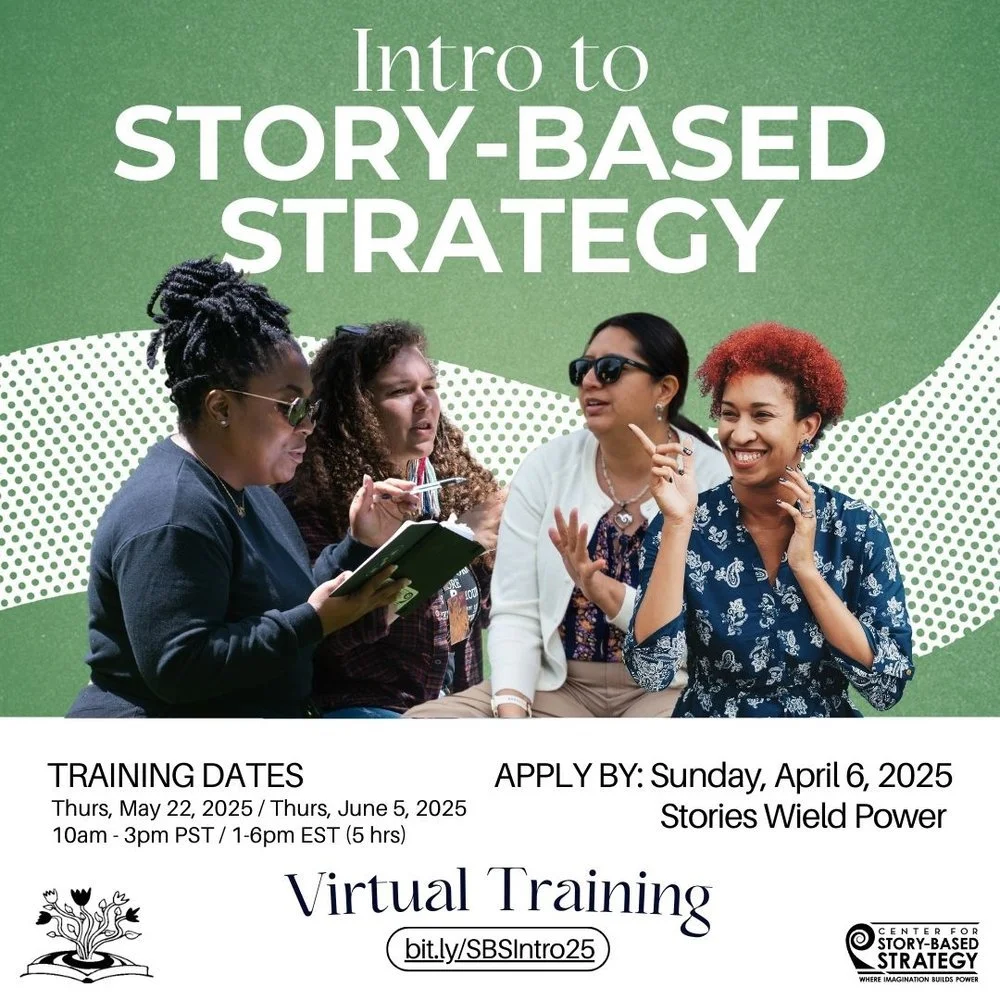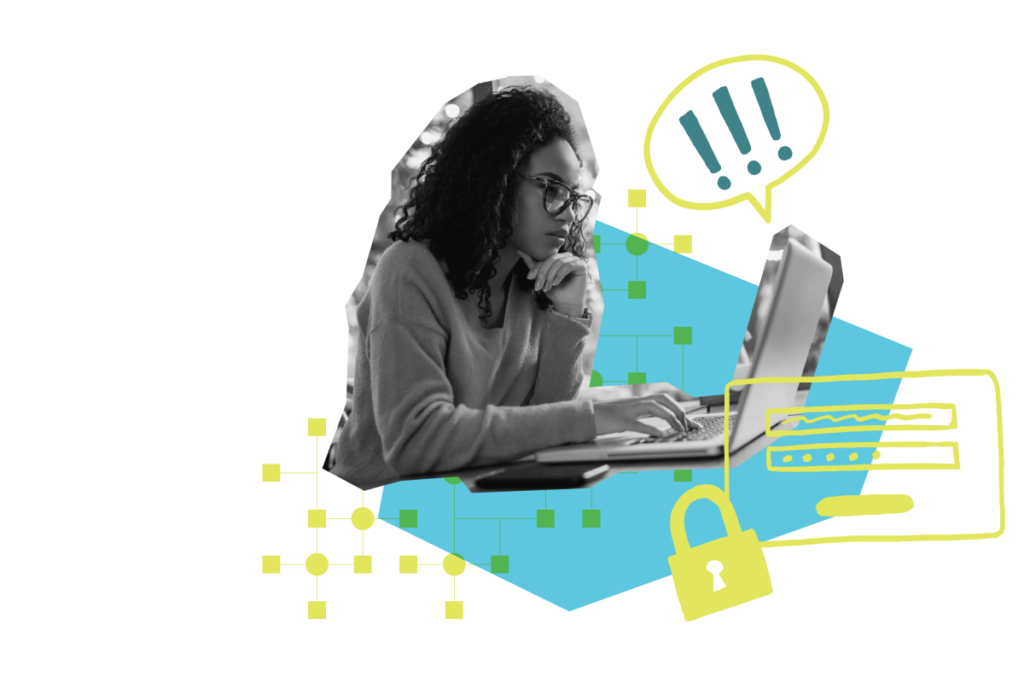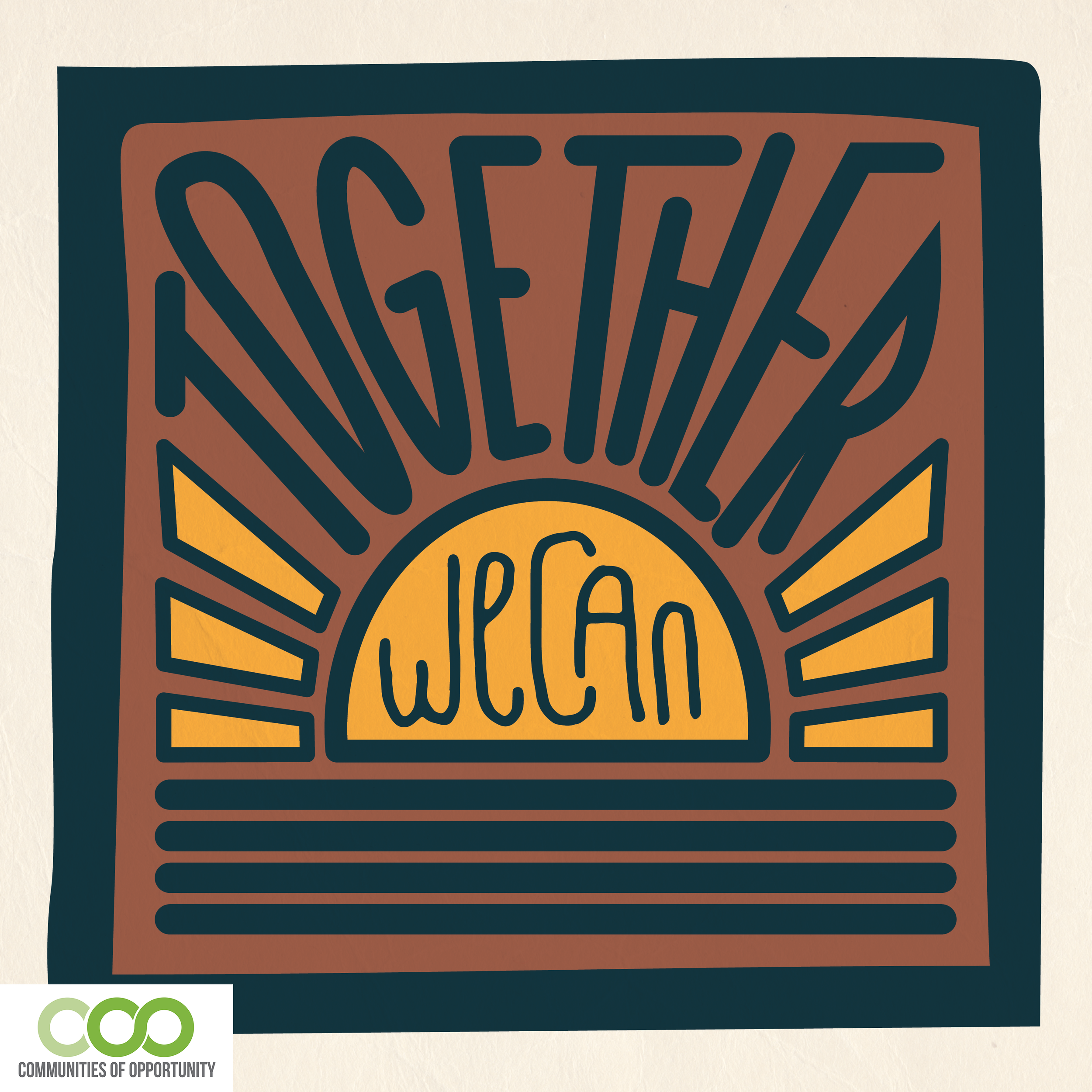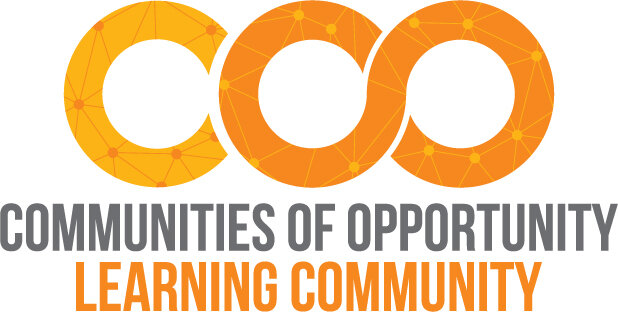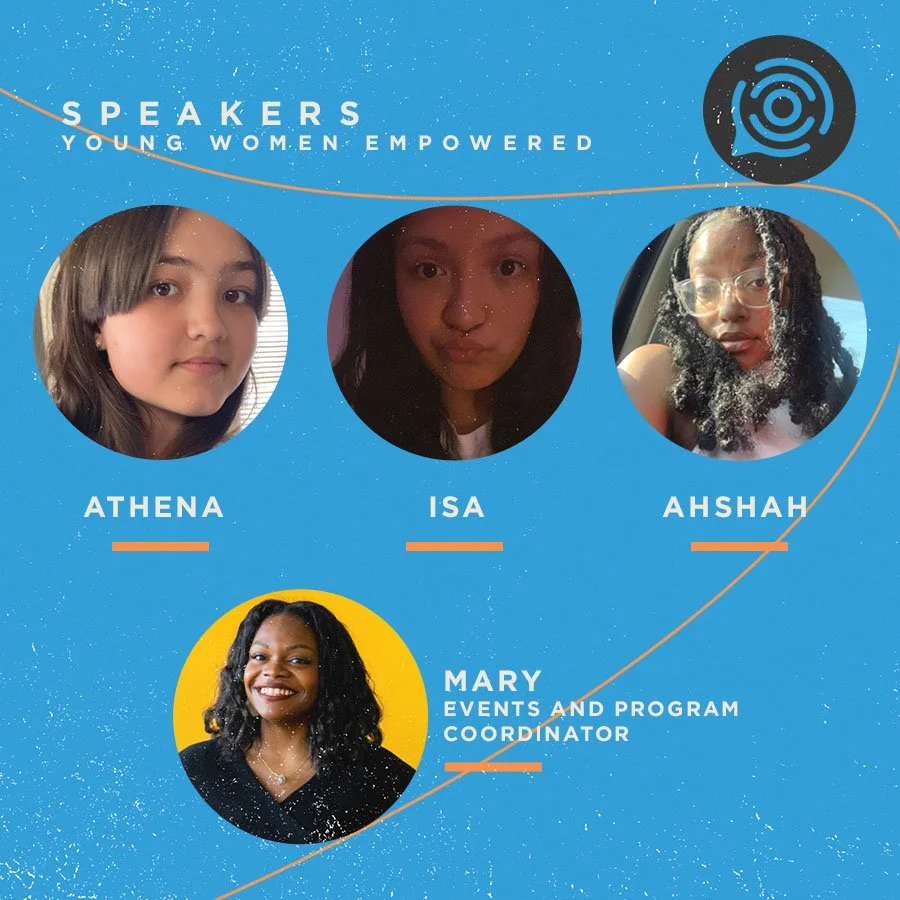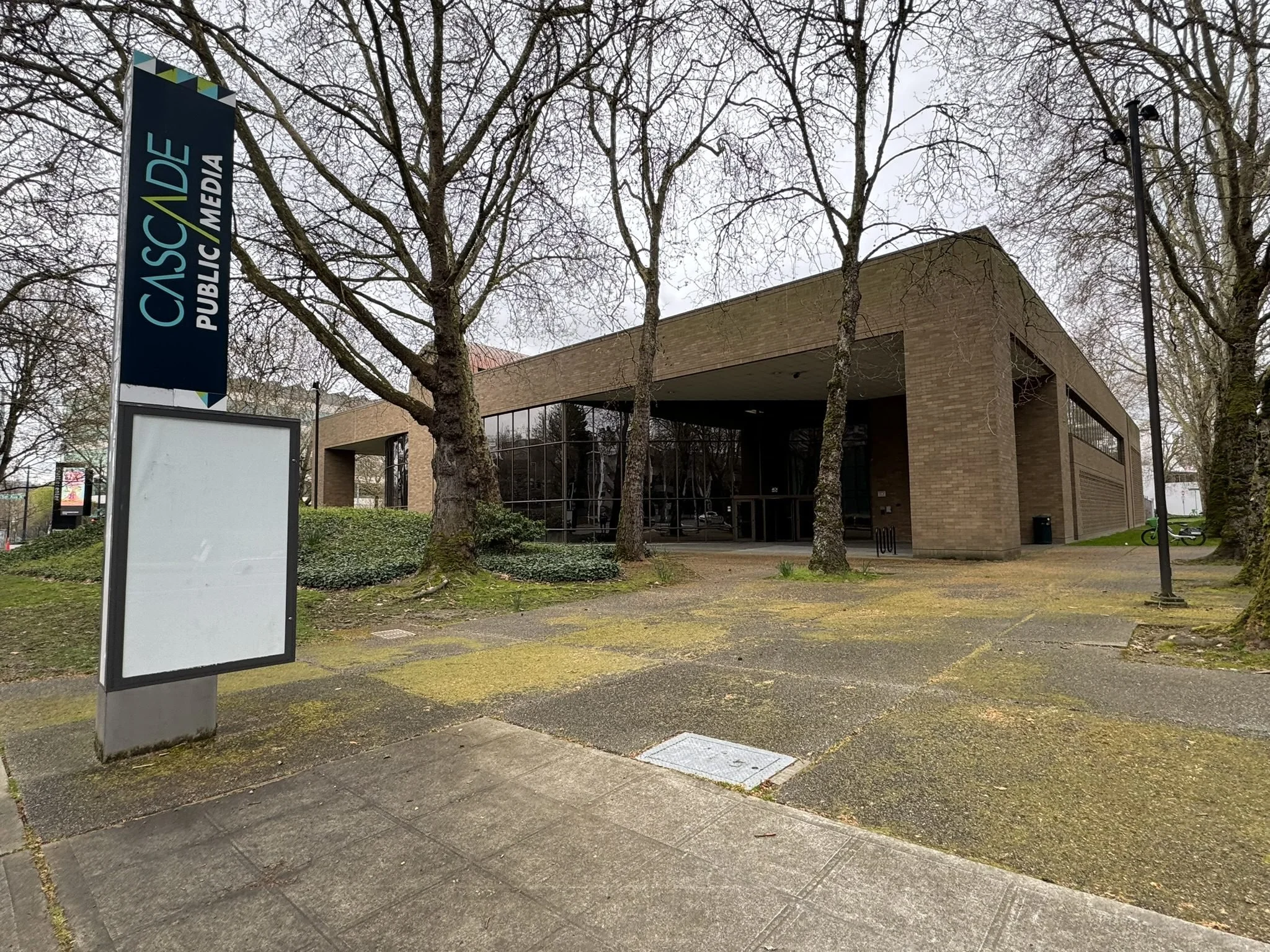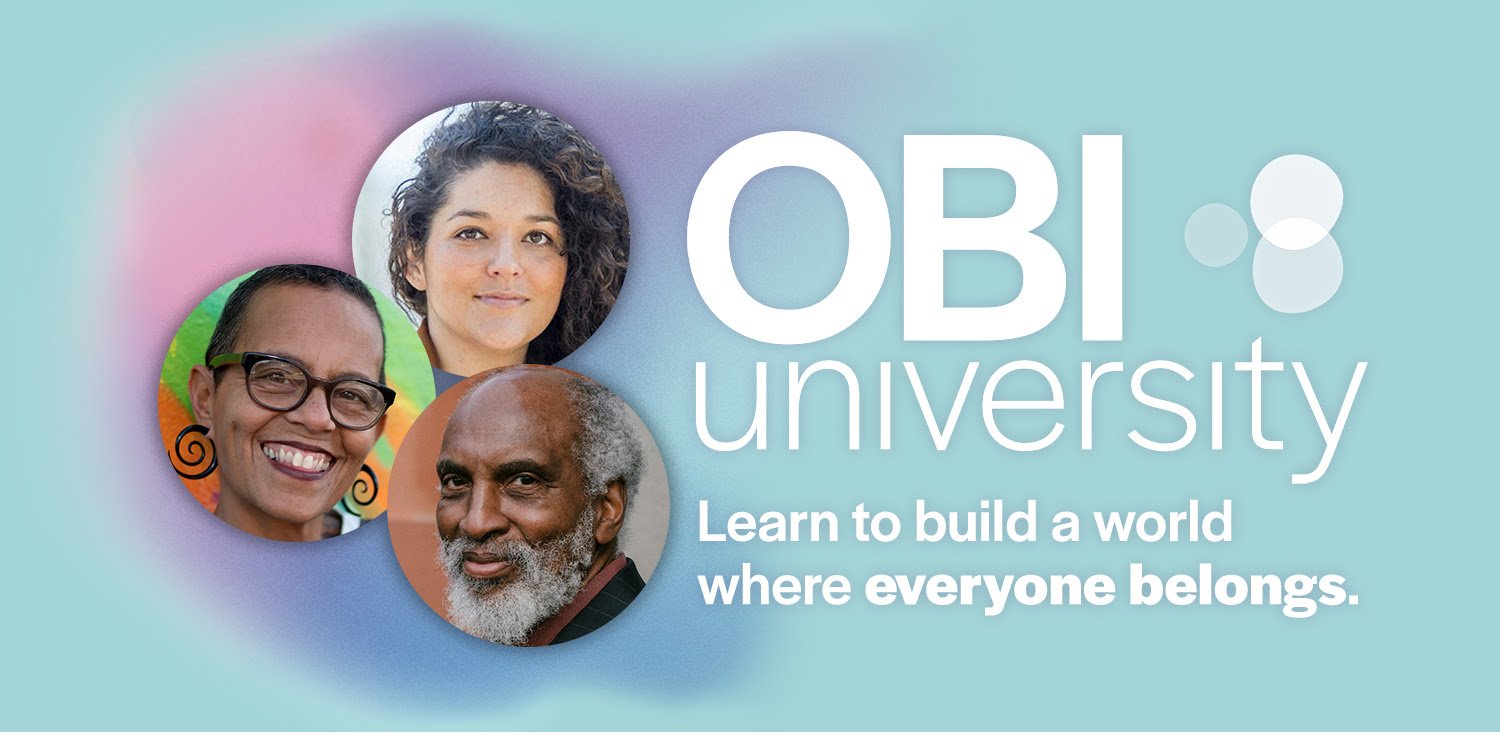Resources
Tools, trainings, resources, and opportunities from the COO Learning Community and other local, regional, and national groups below.
Looking for Best Starts for Kids capacity building consultants? Visit the Capacity Building page.
Have an additional resource to share? Need a tool or resource not listed? Other questions?
Reach out to us at info@coopartnerships.org!
Upcoming Learning & Capacity Building Events
A virtual watercooler for organizers of repair, share, and remaking programs - and anyone considering starting one! No Agenda • No Time Limit • Lightly Moderated. Monthly - Every Third Thursday 5pm Pacific.
API Chaya Queer Network Program presents: Trauma Stewardship, Anger, & Grief for Queer & Trans Black & Brown Parents, Grandparents, & Caregivers who are Survivors of violence
Share and practice trauma stewardship with other QTBIPOC Parents & Caregiver survivors in this moment.
This interactive training on Narrative Change for Racial Equity is for narrative practitioners, communications strategists and storytellers, equity officers and managers, culture workers and creatives, and anyone else leading and participating in racial equity work who wants to deepen their understanding and skills using narrative change strategies.
Ongoing: A community care peer support space for disabled and chronically ill people.
The US Federation of Worker Cooperatives hosts this monthly webinar for groups and people at the very early stages of their worker cooperative project. The webinar describes key steps toward getting off the ground, and where problems often occur. Attendees are offered 30 minutes of free consulting after the webinar from the US Federation of Worker Cooperatives!
Join the Seattle Cooperator Meet-up as we welcome Alex Porteshawver, Adam Powers and Amy Bettle to explore how communities can collaboratively start, invest in, and sustainably manage cooperative solar gardens. This event conversation will engage participants with the practical insights, strategies, and models for building community-owned renewable energy solutions. Join us to network, learn, and help catalyze a cooperative solar future! Free food will be provided.
A virtual watercooler for organizers of repair, share, and remaking programs - and anyone considering starting one! No Agenda • No Time Limit • Lightly Moderated. Monthly - Every Third Thursday 5pm Pacific.
This 3-hr training lays the groundwork for people leading meetings, supporting decisions, and guiding conversations in social justice work. Through dynamic storytelling and real meeting examples, this training introduces two of AORTA’s facilitation pedagogy principles: remove barriers to full participation and the practice of principled disagreement.
In this interactive, hands-on 5-hour session, participants will learn and practice the fundamentals of Story-based Strategy (SBS). This training helps organizers, activists, community leaders, and grassroots communications experts practice creative storytelling and critical narrative analysis.
The US Federation of Worker Cooperatives hosts this monthly webinar for groups and people at the very early stages of their worker cooperative project. The webinar describes key steps toward getting off the ground, and where problems often occur. Attendees are offered 30 minutes of free consulting after the webinar from the US Federation of Worker Cooperatives!
In this interactive, hands-on 5-hour session, participants will learn and practice the fundamentals of Story-based Strategy (SBS). This training helps organizers, activists, community leaders, and grassroots communications experts practice creative storytelling and critical narrative analysis.
A virtual watercooler for organizers of repair, share, and remaking programs - and anyone considering starting one! No Agenda • No Time Limit • Lightly Moderated. Monthly - Every Third Thursday 5pm Pacific.
The US Federation of Worker Cooperatives hosts this monthly webinar for groups and people at the very early stages of their worker cooperative project. The webinar describes key steps toward getting off the ground, and where problems often occur. Attendees are offered 30 minutes of free consulting after the webinar from the US Federation of Worker Cooperatives!
A virtual watercooler for organizers of repair, share, and remaking programs - and anyone considering starting one! No Agenda • No Time Limit • Lightly Moderated. Monthly - Every Third Thursday 5pm Pacific.
The US Federation of Worker Cooperatives hosts this monthly webinar for groups and people at the very early stages of their worker cooperative project. The webinar describes key steps toward getting off the ground, and where problems often occur. Attendees are offered 30 minutes of free consulting after the webinar from the US Federation of Worker Cooperatives!
A virtual watercooler for organizers of repair, share, and remaking programs - and anyone considering starting one! No Agenda • No Time Limit • Lightly Moderated. Monthly - Every Third Thursday 5pm Pacific.
The Digital Safety and Security training will support participants to better understand the difference between safety and security, to practice making their campaigns more secure across all devices, and to become more confident in their ability to protect themselves and others from potential harm online
Search all Resources:
Learning Community Tools & Resources
Jump to a section: Communications and Storytelling | Community Connections | Economic Opportunity | Organizational Operations | Policy & Systems Change | Resources from COO partners and wider network
Communications and Storytelling
Interested in strengthening your storytelling, facilitation or narrative strategy skills? These self-guided courses from Storytellers for Change can support you in amplifying the impact of your narrative change and storytelling work. Support is available, while resources last, from the COO Learning Community to register in one of three programs.
This virtual showcase highlighted the work of five rooted community groups who worked to uplift the experiences of communities most impacted by COVID-19 and the culmination of their community-led data collection and storytelling projects conducted over 2021.
Workshop description: Illuminate what to consider when your communication starts local and then is shared more broadly. How does the strategy and tools change? What are the major thresholds, advantages, and challenges for different scales of audiences? Workshop focuses on scales of neighborhood, city, and county. Watch the recording here.
Learn more about crafting effective messages and getting audiences with local government to meet your goals. Build relationships and reputations that facilitate generative partnerships and ways to influence public leadership and represent your community.
COVID-19 has redefined nearly every process and task. This workshop will look at the digital tools for communicating at various levels (team members, clients, community members, funders) that can keep us socially connected while physically distant. These tools can be power campaigns even without pandemic restrictions.
Explore steps that align storytelling and policy change. We follow a process from idea to advancing community-centered solutions through formal policy change. How to translate culturally specific perspectives for white audiences, while staying authentic to our own communities and cultures.
Hear about what goes into envisioning, planning, and carrying out a communication plan for fundraising and capital campaigns. Explore what networks are important and how to find and build relationships with crucial partners while keeping your community centered and connected through the process.
Explore making appropriate and generative connections with media members. Ensuring your story is expressed in ways that promotes your mission and affirm your community. Exposing pitfalls and traps to avoid. Recording, press kit template and presentation slides available.
Building intercommunity coalitions. How to be in solidarity with those communities under most threat, even when not your own. Starting and maintaining alliances during COVID-19. Workshop featuring guest speaker Colleen Echohawk-Hayashi.
Community Connections
Reflections from the December All-Partner Convening - a day devoted to connection, learning, sharing, and restoration.
Communities of Opportunity (COO) is excited to share some of the highlights from the COO All-Partner Convening held on May 10, 2023 with Dr. Robin Wall Kimmerer. This event brought together individuals and organizations driven by a shared commitment to equity, justice, collaboration and positive change.
The Tesfa Program developed this web-based toolkit to increase the capacity of providers, organizations, and decision-makers to better connect and serve local Ethiopian communities. Check out the toolkit, accompanying podcast and ways to get involved here!
This conversation with youth leaders and staff from Young Women Empowered (Y-WE) explored how to create supportive and healthy spaces for youth leadership and development — and youth ownership of transformative organizing work.
The first two sessions from the GROUNDED 2022 Speaker Series are now available for viewing! Learn how local organizations and faith communities are responding to community needs and priorities in a time of global pandemic and displacement.
Videos and recap from COO’s September 2021 Meeting the Moment gathering, Community Conversations on Healing, Advocacy and Building the Future We Want.
Recapping the Cultivating Community Transformation discussion and reflections on the journey of COO — the difficulties of shifting systems and institutions to enter into more relational and authentic conversations with community, the early intentions of COO coalesce around shared values, listen to the leadership within communities, and the work to invest in and strengthen community partnerships that can inform and bring momentum to the policy and systems changes needed for a more equitable King County.
Join COO's "Cultivating Community" 6 part series, designed to amplify and learn from the efforts of our community driven partnerships.
Economic Opportunity
Imagine an economy that serves people, instead of people serving the economy. Where community and worker-owned businesses meet local needs. To get to the economy we need, we need to get under the skin of the economy we think we know. Join us for a deep dive into understanding the “economy” that you won’t find in economics class or by watching stock tickers. This is an opportunity for changemakers to join a learning community on collective root cause solutions.
In this second part of the Commercial Affordability Summit recap, read about other current programs and models of commercial affordability and access to capital and support for small business and entrepreneurs: from those led by the City of Seattle such as Restored; to some of the most community rooted examples of commercial affordability projects.
With the Commercial Affordability Summit convening, COO sought to share what we learned from the pilot project, which concluded in 2022, and provide a platform for learning about additional strategies, models and programs that are currently being designed and implemented in support of an equitable and thriving small businesses environment and greater economic justice.
Communities of Opportunity (COO) and Grow America (formerly National Development Council) hosted this 3 session Asset Management Training series for community-based organizations or individuals that own real estate, are developing a space to own, or considering ownership in the future.
2021 Community Development Lunch & Learns series’ recordings are now viewable. These alternating deep dives on specific topics and issues of equitable community development, offered opportunities for participants to ask questions and discuss their projects with peers and community development experts.
In this first session, participants explore community-based strategies to build an equitable and regenerative economy, using the Just Transition framework.
In this second workshop, the focus is on the need to create and build new economic structures rooted in the experiences of our community.
Organizational Operations
Have a question about financial planning, management, or reporting? Contact Coach Amy through the financial coaching hotline!
Financial coaching helpline support is 1:1 support for organizations seeking support on financially related questions. It can be a good introduction to 1:1 financial coaching or a quick way to talk through a financial question or challenge.
COO hosted a series of two workshops to learn tools and practices around financial planning and sustainability. These workshops offered case studies on how organizations are using financial information and long-range planning to make strategic decisions about their visionary work, and offered tools and strategies to create financially sustainable and health organizations.
This workshop focuses on basic fundamentals of what fiscal sponsorship is - including a particular focus on exploring how to best support youth-led groups who are interested in being fiscally sponsored and working with youth-driven projects.This panel included, youth and community leaders who have had successful experiences as a fiscal sponsor and/or as a fiscally sponsored group and what contributed to a healthy relationship.
COO Learning Community strategy partnered with Communities Count to bring workshops and capacity building resources on data and evaluation to community partners.
New Toolkits & Capacity Building resources for community organizations — learn more about supports available through the COO Learning Community
Financial Oversight is an important part of leading an organization – we need good financial information and tools to make sound strategic decisions about our work. In this workshop, Amy Michael and Sarah Tran discuss how organization leaders approach financial oversight. They share some tools and practices you can use at your own organization to check in on your own financial oversight. Recorded March 8, 2022
In this workshop trainers do a deep dive into capital campaign readiness and the importance of organizational capacity for effective capital campaign fundraising. Regardless of where you are on your campaign journey, if you know a capital campaign is on the horizon, taking steps now to build out your fundraising capacity is critical to your organization’s long-term success.
This workshop provides a high-level overview of capital campaign fundraising concepts and terms including campaign feasibility study, prospect research, gift pyramids, and other fundraising activities within the context of a capital campaign. Also included is a review typical capital campaign timelines and using a community-centric fundraising lens, an exploration of fundraising strategies that can leverage broader support for an organization’s vision and mission by centering on a shared vision for the future.
Hear about what goes into envisioning, planning, and carrying out a communication plan for fundraising and capital campaigns. Explore what networks are important and how to find and build relationships with crucial partners while keeping your community centered and connected through the process.
Resources and tips to support inclusive and equitable online meetings and online meeting facilitation.
Policy & Systems Change
With the Commercial Affordability Summit convening, COO sought to share what we learned from the pilot project, which concluded in 2022, and provide a platform for learning about additional strategies, models and programs that are currently being designed and implemented in support of an equitable and thriving small businesses environment and greater economic justice.
COO and the Seattle Foundation partnered with Bolder Advocacy to offer a training on the fundamentals of nonprofit advocacy. A PDF of the presentation may be accessed here and a recording of the training can be accessed here.
To support continuous improvement and learning for equitable contracting work COO sought to document where and how COO has been successful in creating more equitable procurement processes, particularly in the area of contracting, and what gaps continue to exist. The Equitable Contracting Report here, summarized a review of King County COO Community Service Agreements and Consultant Contract processes, best practices from the field, and themes from key informant interviews with COO community partners.
Learn more about crafting effective messages and getting audiences with local government to meet your goals. Build relationships and reputations that facilitate generative partnerships and ways to influence public leadership and represent your community.
COVID-19 has redefined nearly every process and task. This workshop will look at the digital tools for communicating at various levels (team members, clients, community members, funders) that can keep us socially connected while physically distant. These tools can be power campaigns even without pandemic restrictions.
Building intercommunity coalitions. How to be in solidarity with those communities under most threat, even when not your own. Starting and maintaining alliances during COVID-19. Workshop featuring guest speaker Colleen Echohawk-Hayashi.
Resources from COO partners and wider network:
Repairing Roots: Historic Black Towns and Spatial Reclamation explores how these communities can guide national and local efforts for reparative spatial justice and emphasizes that their preservation and prosperity should be a top priority for policymakers, philanthropic organizations, and public officials. It calls for an approach led by these communities themselves, centering their voices in shaping the path to lasting repair and renewal.
How Authoritarian Populist Politics Thrive in Contemporary Democracies — Key concepts to understand politics beyond the left-right paradigm. How can we bridge the gaps between "us" and "them" in a world divided by fear and grievance? This article explores:
- The blend of populist rhetoric and authoritarian practices
- The rise of these movements in democratic nations
- How exclusion deepens societal divides
Election cycles can be opportunities to deepen community engagement, sharpen narratives, and clarify organizational and movement values. Even after Election Day, how can we prepare ourselves as individuals and organizations to play the right roles, to respond quickly to unfolding events, and to buttress our connections and partnerships?
Divided into two parts, the Democracy Resilience Toolkit is designed to prompt discussion and action on protecting racial equity in the face of political disruption.
These national rapid-response calls are designed to support *BAMEMSA organizations + partners in strategic response/defense and strategy development.
Vision Change Win (VCW) rapid response supports all left movement organizations, leaders, and organizers dealing with or anticipating a community safety incident.
A toolkit from Storytellers for Change to analyze dominant narratives and develop anti-racist narrative strategies in community development.
The General Start-Up Co-op Academy takes you from “dream stage” to “shovel ready” in 10 weeks. You’ll have weekly sessions to learn about cooperative ownership, democratic management, and cooperative economics.
Want to craft compelling narratives that drive real climate action? The DIY Narrative Research Methods guide from Climate Advocacy Lab can help!
This FAQ resource was created to accompany the more robust legal guidance document, Advancing Racial Equity: Legal Guidance for Advocates.
2025 has brought with it the mainstreaming of misleading and deceptive narratives and practices to shape opinions and influence decision-making. Prebunking, a proactive approach that equips people with the tools to recognize falsehoods and manipulation before encountering it, has proven to be an effective strategy for building people's resilience to online harms.
For many communities and nonprofits, the current landscape is confusing and alarming. In this FAQ, BMP focuses on how nonprofits could be affected by the current landscape, with an emphasis on those who serve vulnerable communities that are being targeted by many federal actions.
Office Hours are donation based, 30 minute appointments with an AORTA member who will offer thought partnership and one-on-one consultation; they are designed for individuals who are a part of or starting groups working towards racial, economic, and gender justice and are committed to power sharing and deep democracy.
Just Practice has compiled a short list of resources to help us connect, ground, fight and prepare for the years ahead.
In our new briefing, Transform Finance outlines various stages that investors may find themselves in exploring the space: understanding the landscape of EO funds, identifying the investment approaches of different funds, and comparing and evaluating the potential impact of funds. We provide recommendations for these stages as well as overall considerations to maximize impact and build the field. At the core of our recommendations is an analysis of 53 funds that finance EO in the United States and Canada, made across investment approaches, target financial returns, size, geographic focus and impact.
To attract, grow, and keep production teams in Seattle. In partnership with Seattle Center, the City is activating the M5 Creative Building (401 Mercer Street) for temporary use for film production and other creative production office space, conferences, workshops, controlled events, and productions.
ULMS Community Support program was created to make sure that young people who end up in the juvenile system are provided with the stability they need to lead safe, healthy, and productive lives
Using campaign messaging that acknowledges how race plays a role in our politics, we are working to create a better future for every one of us regardless of the color of our skin, our genders, or how we pray. We Make the Future Action (WMTFA) serves as an implementation home for the Race Class Narrative (RCN) and other empirically backed messaging.
Economics for Emancipation (E4E) is a seven-module introductory curriculum with interactive and participatory workshops. It offers a deep critical dive into the current political economic system, exploration of alternative economic systems, and dynamic tools to dream and build the economy that centers care, relationship, and liberation.
The Arc of King County is excited to announce TEEN SCENE, a brand new monthly meet-up group for teens age 13-17 with intellectual and developmental disabilities
DPN has released three new policy kits on empowering tenants through increasing housing supply and enshrining tenant protections in state and local law. DPN has also released a Deliberative Democracy Processes policy kit, an open resource for legislators, advocates, journalists, and citizens to learn how states can utilize citizen deliberation models to break gridlock, reduce special-interest capture, and build consensus
A recording of the recent Public Health Communication Collaborative webinar, Structural Racism and Public Health: How to Talk to Policymakers and Community Members, is now available. Presenters shared key research findings on framing policy and public-oriented communications about structural racism—an unjust system of laws, procedures, and beliefs that sustain racial and ethnic inequality—and public health
Through this program, New Growth Innovation Network (NGIN), and its partners will deliver meticulously crafted capacity building courses and tailored hands-on technical assistance to fortify partnerships. These offerings are rooted in the understanding that creating enduring partnerships between economic development organizations and community-based organizations are essential to achieving lasting, equitable, and inclusive economic development strategies and funding coalitions.
Using narrative change strategies to address care as a systemic, societal, and communal responsibility will pave the way for seismic cultural, political, and economic shifts in the United States.
The Social Change Ecosystem Map is a framework that can help individuals, networks, and organizations align with social change values, individual roles, and the broader ecosystem. It has two components: shared values embodied in the yellow circle in the middle; ten roles that people and organizations often show up in when they are participating in social change efforts.
Individuals in community-building and social movement work can experience experience difficult interpersonal conflict with comrades or colleagues, too. This workbook offers exercises for self and group exploration to build collective self-awareness and conflict resilience. These tools will help resolve interpersonal tensions and increase the capacity to work together to dismantle oppressive systems and create regenerative ones.
Take free classes with the Othering & Belonging Institute (OBI) at UC Berkeley. OBI helps changemakers build more vibrant, just and inclusive communities and structures. At OBI University, participants will learn about structural marginalization, the processes of othering, and the building blocks of belonging, so we can co-create a world where all are included in our circle of care and concern.
Urban League of Metropolitan Seattle’s (ULMS) Construction Trades Program supports individuals looking to get into the trade and start a new career. ULMS partners with instructors and companies to prepare you for your first job. ULMS offers assistance for tools, books, transportation, and job preparedness, skills certifications courses, and career placement assistance in construction and other fields.


